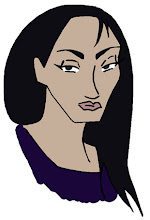Marjorie Smith
A version of this article will appear in this week's Tribune (out on 25 Feb)
The wildfire of protests across the Middle East and North Africa are clear sign of a thirst for profound change in the Arab world and beyond. They are also a manifestation of a deep yearning for modernity.
The successful intifadas in Tunisia and Egypt
Not only is modernity, the aim, it has also been the tool that has underpinned the protests. It is easy to forget that the spark that lit the tinderbox was Wikileaks. US Embassy cables from Tunis Tunisia
The greatest weakness of Mubarak, Gaddafi et el was the political stasis that they relied on to preserve their power. What was once its greatest strength (i.e. stability) became its greatest weakness.
Apparently unbeknown to their security apparati, a leaderless mass movement had moved beyond a nascent stage and through multifarious networks stood poised to come out onto the streets. .Like all repressive regimes, one of the main aims were always to isolate individuals and deter political intercourse. Up until recently, total control of the media allied to a ubiquitous and intimidating secret police was enough to deter any significant opposition whatsoever.
Facebook, Twitter, YouTube and chat forums created a public space that young Arabs were only to keen to fill.. Politicisation led to organisation which led to demonstrable opposition.
Whist Ben-Ali in Tunisia , Mubarak in Egypt and Gaddafi in Libya
The role of satellite television has also been highly important in revealing that there was an alternative narrative to that which was disseminated through the regimes’ official channels. It has served as a crucial source of independent information that has enabled people to access news that could not be controlled by the regimes.
The influence of Al-Jazeera transmissions from their studios in Qatar
The growing disjuncture between oppressor and oppressors went unobserved in the West, whose comfort zone of stability in the Middle East, was epitomised by Tony Blair’s crass comments on Mubarak (immensely courageous and a force for good“). This was an accurate reflection of the west turning a blind eye to demands for democratic change. Oil and Israel
It is hugely ironic that two of the current bête noirés of the USA
The Arab world needs now to decide how to move rapidly to democratic governance. A move that must include a role for trade unions and centre-left groups, that seem to have been overlooked as outsiders press for economic reforms without balancing them with the necessary parallel social reforms.
It will be interesting to observe developments outside of the Arab world where other forms of repressive regimes exist. The ruling theocratic clique in Tehran must be sleeping less easily these days and even the ruling party in Beijing





No comments:
Post a Comment